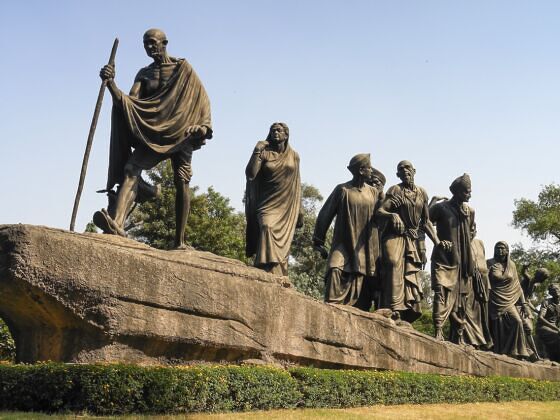I expected the great grandson of the Mahatma to be thin, to have the beginnings of the old man’s face of saintly collapse. But Tushar Gandhi, who greeted me at the door of his spare ground floor flat in Santa Cruz, near the Mumbai airport, had the beefy, bearded face of a football lineman. A face that looked eager to escape its name.
I thought I’d find looking around a picture of Gandhi somewhere, but found instead a quiet yellow painting of Kasturba, Gandhi’s wife, at her spinning wheel. Symbol of Indian simplicity and self-sufficiency. Hard not to be moved by it after the two-hour crawl of Mumbai traffic.
